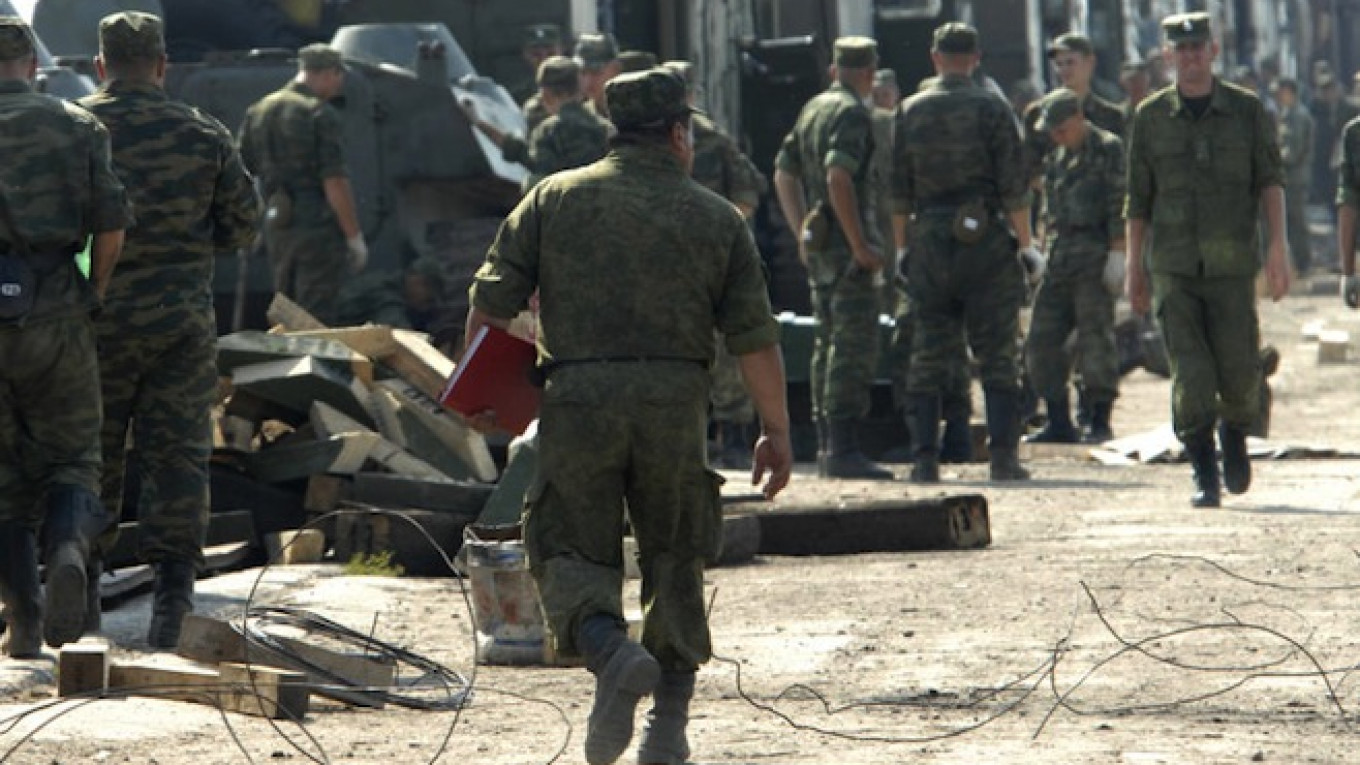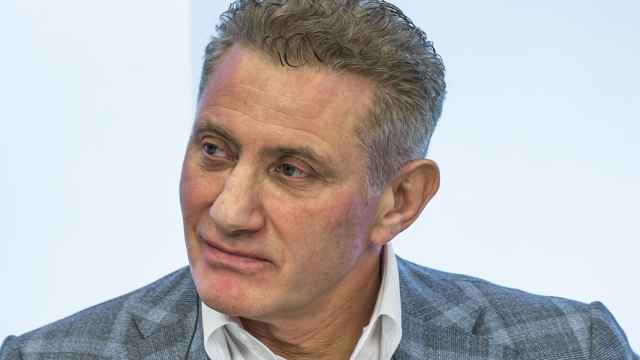Russian military experts have expanded their presence in Syria over the last year, a Syrian military official said Wednesday, pointing to a deepening of ties which Washington fears may be a buildup to support Syrian President Bashar al-Assad.
Russia confirmed that it had military experts on the ground in Syria but said they were there only to help the Syrian authorities receive arms shipments which it has acknowledged sending in the past.
Officials in the United States, which is fighting an air war against the Islamist militant group Islamic State in Syria and also opposes Assad's government, have said in recent days that they suspect Russia is reinforcing to aid Assad, Moscow's ally since the Cold War.
Washington has put pressure on countries nearby to deny their air space to Russian flights, a move Moscow denounced on Wednesday as “international boorishness.”
"Russian experts are always present but in the last year they have been present to a greater degree," the Syrian official said. "All aspects of the relationship are currently being developed, including the military one," he said.
Momentum has turned against Assad in recent months in the four-year, multi-sided civil war which has killed around 250,000 people and driven around half of Syria's 23 million people from their homes.
In the latest major battlefield setback, state television reported that government troops had surrendered control of an air base in northwestern Syria to an alliance of rebels after nearly two years under siege.
The loss of the base meant the last government troops had now withdrawn altogether from central Idlib province, according to the Syrian Observatory for Human Rights, a UK-based group that monitors the conflict. The province has been one of the main battlefields of the war but has seen gains this year by insurgents led by al Qaeda's Syrian branch, the Nusra Front.
Coalitions of rebels, who range from hardline Sunni Islamists like Nusra to more secular nationalists, have made gains in the northwest and southwest of the country, often fighting against both the government and Islamic State fighters who control much of the east of Syria as well as northern Iraq.
Tension has built in recent days between the United States and Russia over Moscow's support for Assad, who also has strong backing from Iran.
Russia says the Syrian government must be incorporated into a shared fight against Islamic State. The United States and Assad's foes including Sunni states Turkey and Saudi Arabia see him as part of the problem.
Russia's Foreign Ministry said Moscow would consider additional military measures needed for fighting terrorism in Syria if it deemed them necessary. It also said Moscow saw "very strange" activity on Syria aimed at misrepresenting Russia's position on fighting terrorism.
"Worrisome"
A senior U.S. official said on Saturday Washington had detected "worrisome preparatory steps," including transport of prefabricated housing units for hundreds of people to a Syrian airfield, that could signal that Russia is readying deployment of heavy military assets there.
The official, speaking on condition of anonymity, said Moscow's exact intentions remained unclear. Russia has in recent days set out the case for supporting Assad in the most forthright terms yet, likening the Western approach to Syria to failures in Iraq and Libya.
The diplomatic quarrel has centered on use of air space for flights which Moscow says bring humanitarian aid but U.S. officials say may be bringing military supplies.
To avoid flying over Turkey, one of Assad's main enemies, Russia has sought to fly planes over Balkan states, but Washington has urged them to deny Moscow permission.
On Tuesday Bulgaria refused a Russian request to use its airspace for flights due to doubts about the cargo on board. It said on Wednesday it would allow Russian supply flights to Syria to use its airspace only if Moscow agreed to checks of their cargo at a Bulgarian airport.
Turkey has not officially confirmed a ban on Russian flights to Syria but says it considers any requests to fly over its air space to Syria on a case-by-case basis.
Fallen Base
The Syrian military has faced manpower shortages and has drawn on the help of local and foreign militia to hold on to territory. The government controls parts of western Syria from Damascus up to the coast, is in a protracted battle for the northern city of Aleppo and other parts of the country, and has outposts in the east, the northeast and the south.
On Wednesday the army withdrew completely from Idlib province after insurgents captured the Abu al-Duhur military airport there, said Rami Abdulrahman, head of the Syrian Observatory. Members of a local pro-government militia remained in just two Shi'ite villages in the province, he said.
Rebel sources said the Nusra Front had played a leading role in the capture of the airport. Nusra is part of a coalition of Islamist groups called the Army of Conquest which has seized most of Idlib province this year.
In a news flash, Syrian state television said the army garrison that had defended the military airport had evacuated.
Another major base east of Aleppo, Kweiris, is currently besieged by ultra hardline Islamic State militants.
Nusra Front made gains in northwestern Syria alongside other insurgent groups since May, seizing the city of Idlib, the town of Jisr al-Shughour and moving closer to coastal areas vital to government control of western Syria.
A Message from The Moscow Times:
Dear readers,
We are facing unprecedented challenges. Russia's Prosecutor General's Office has designated The Moscow Times as an "undesirable" organization, criminalizing our work and putting our staff at risk of prosecution. This follows our earlier unjust labeling as a "foreign agent."
These actions are direct attempts to silence independent journalism in Russia. The authorities claim our work "discredits the decisions of the Russian leadership." We see things differently: we strive to provide accurate, unbiased reporting on Russia.
We, the journalists of The Moscow Times, refuse to be silenced. But to continue our work, we need your help.
Your support, no matter how small, makes a world of difference. If you can, please support us monthly starting from just $2. It's quick to set up, and every contribution makes a significant impact.
By supporting The Moscow Times, you're defending open, independent journalism in the face of repression. Thank you for standing with us.
Remind me later.




